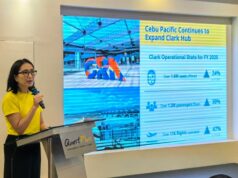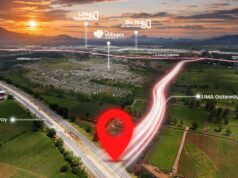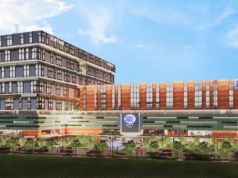Beyond Dividends: It’s Time for CDC to Step Up for Clark’s Surrounding LGUs
THE CLARK Development Corp. recently made headlines with its ₱2.488 billion remittance to the national treasury for 2024. This brings its total remittance to an impressive ₱5.50 billion in just three years—an achievement that reflects the robust growth of the Clark Freeport and Special Economic Zone.
But behind these glowing numbers lies an overlooked truth: while CDC celebrates its financial milestones, the local government units surrounding Clark bear the brunt of the region’s growing pains—quietly and often unsupported.
Clark’s rapid economic rise has undoubtedly spurred national development. However, it has also intensified the challenges faced by neighboring LGUs such as Angeles, Mabalacat, Bamban, Capas, Porac, Magalang, and even San Fernando.
These areas now grapple with worsening traffic congestion, rising housing costs, strained healthcare systems, mounting waste and garbage and increasing demands on public safety.
Workers employed within Clark reside in these LGUs and depend on their health facilities, schools, and transportation networks. Waste generated inside Clark spills over into local landfills. Clearly, it is not CDC that absorbs the cost of progress—it’s the surrounding communities.
We frequently talk about “inclusive growth.” But how inclusive can development be if it leaves behind the very LGUs that help sustain it?
The law that established the Bases Conversion and Development Authority, which governs CDC, mandates balanced development between the economic zones and their neighboring communities.
This is not simply a guideline—it is a legal and moral duty.
Yet CDC’s efforts remain largely limited to remittances and consultations. That’s no longer enough.
What’s urgently needed is direct, substantial financial support and true collaboration with surrounding LGUs.
This means:
-Investing in critical infrastructure beyond Clark’s borders that is essential for its workers and logistical systems.
-Strengthening local public services such as healthcare and waste management.
-Supporting affordable housing projects in nearby towns and cities to ease displacement and housing pressure.
-Assisting in addressing worsening traffic situation, contribute in maintaining peace and order amid rapid urban expansion caused by Clark’s economic magnetism.
CDC has both the financial muscle and institutional capacity to make this happen. More importantly, it has the responsibility.
The true measure of development lies not in how much profit is returned to the treasury, but in how fairly progress is shared.
If CDC wants to be recognized as a model for sustainable development, it must live up to the ideals of fairness, inclusivity, and regional solidarity.
Because at the end of the day, billions of pesos in dividends will mean little if they come at the cost of under-resourced communities struggling to carry the load.
It is time for CDC—not just to remit, but to reinvest.





